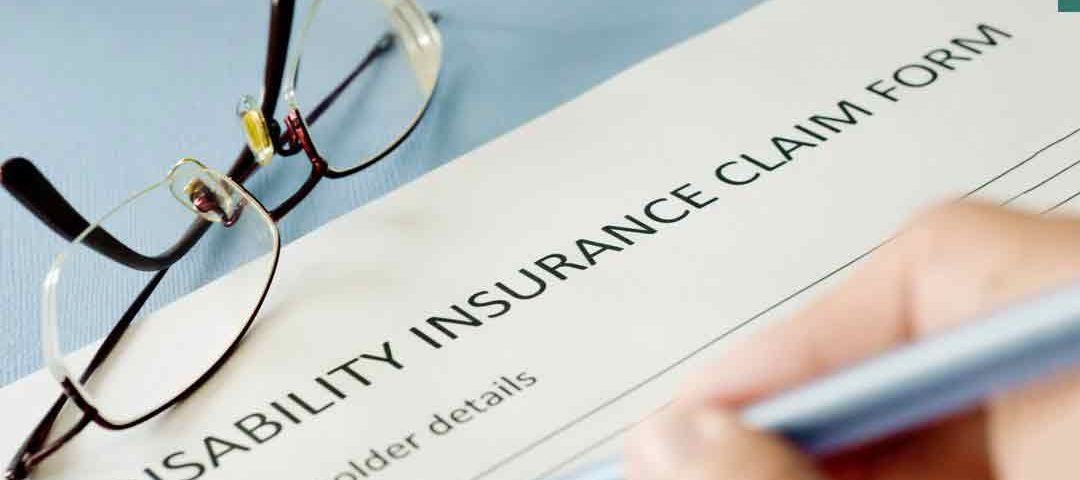Life is unpredictable. While we never want to anticipate dealing with a sudden illness or accident, anything can happen out of our control. Sick days can help, but when an accident and extended treatment is needed, short-term benefits can be a financial life-saver to employees. This is why we recommend that our clients consider disability benefits as part of a comprehensive and competitive benefits package.
Here are answers to five commonly asked questions that tell you most of everything you need to know about short-term disability benefits.
1. What are short-term disability benefits?
Short-term disability benefits often are claimed when an employee has either been in an accident or is dealing with an extended illness. It requires a doctor’s statement claiming the need for prolonged absence from work for a specific medical condition.
The short-term leave usually spans up to a maximum of 17 weeks, or in some cases, 26 weeks. How quickly the benefits are accessed and granted are dependent on how the plan is first setup with the insurance provider. For instance, usually in the event of accident, the benefits can be effective and payable right away. In other cases, it might start three days following an illness. Most policies have a first-day hospital provision, allowing payment from the first day of hospitalization. For illnesses, the benefits usually kick in between 3 to 7 days, depending on the employer’s chosen plan provision. A knowledge benefits consultant can advise you on what will be best for your company when setting up the plan.
2. How does short-term disability compare to claiming Canadian Employment Insurance (EI)?
For companies that do not offer short-term disability benefits, employees can claim Canadian Employment Insurance in the event of an accident, burnout or illness. However, the claim amount is capped at current weekly sum of $524 per week (Varies every year, rate provided at the time of this article), equivalent to an annual salary of 27,248. For employees who make far more than that, this is a significant pay-cut. Within a company offering, the short-term benefits can pay three times that amount per week, or approximately $1,500, matching a maximum annual salary of $78,000. In terms of payout percentage, while EI pays 55% of pre-disability weekly earnings, private short-term disability plan coverage ranges from 65% to 75% of the employee’s salary.
For EI claims, the wait times for benefits to go into effect are longer as well. The waiting period is mandatory for EI, therefore employees might have to wait two weeks in the event of an accident or illness. For an employee who is supporting a family, these extended wait times can be detrimental.
3. What’s the advantage for a company to have short-term disability benefits?
The obvious answer here is looking out for the wellbeing of your employees. Short-term disability benefits can be a great extra to include over the standard medical and dental benefits. Not only does this help to lure top talent, but it tells your employees that when life gets hard, their employer will be there to support them.
Offering short-term disability benefits might also entitle the company to a reduction in EI premium rates. Because your employees would claim from their corporate plan, instead of relying on EI, the government recognizes that your company is helping to reduce the demands made on the EI program.
While the short-term disability plan must meet certain outlined requirements, a knowledgeable benefits consultant can help to ensure your disability benefits are setup so that your company qualifies for this EI premium reduction. A service-oriented benefits consultant can also assist in the application and provide an idea of your total savings.
4. What’s the process for applying to short-term disability?
In order to ensure legitimacy of every claim, insurance providers will request that a detailed form is thoroughly completed (see form example). Then, three written statements must be provided: a statement from the doctor, detailing the length of and reasons for absence; a statement from the employee, explaining why they are no longer able to carry out their occupation; and a statement from the employer, providing their own testament as to the job itself and what duties the employee currently performs.
The insurance company will then evaluate the case and release the benefits, if approved. Since short-term disability benefits do not occur frequently, relying on an experienced benefits consultant can help streamline the entire process.
5. Can an expecting mother or an employee on parental leave claim short-term disability?
Pregnancy itself is not considered a disability. However, in some cases, expecting mothers may suffer from complicated pregnancies. Some might have high-risk pregnancies and put on early bed-rest, while others might be struggling with delivery complications.
While it not common to use short-term disability to cover such instances, every request is treated on a case-by-case basis. The same claims process would apply to this circumstance and assessed by the insurance company to determine whether the request is warranted. Again, this is not common, but can be an option for some women who struggle with difficult pregnancies. (Read more about parental leave and benefits here.)
Simplify the Claims Process with a Benefits Consultant
When life throws your employees curveballs, it’s nice to offer them additional peace-of-mind with short-term disability benefits. But each case is unique and navigating the process of applying and claiming these benefits, when other options such as EI exists, can be difficult. Trusting a reputable benefit plan consultant can make things easier on you and your employees, allowing you to focus on reallocating resources when your team is missing a key player.
Should an Employer offer Short Term Disability Benefits?
To answer this question, it is important to evaluate the overall objective of the employer’s benefits plan and compensation strategy. For example, a company may want to conduct benchmark analysis to see if others in the field want to offer this benefit. Once the industry data is collected, the employer can then decide whether a short-term disability plan will enhance its competitive position by offering this benefit. An experienced benefit consultant can help a company evaluate all its options in deciding whether or not to offer Short Term Disability in its benefits package
.Ready To Start?
Whether you are with a business, association, or owner operator, we have the solution for your needs.




